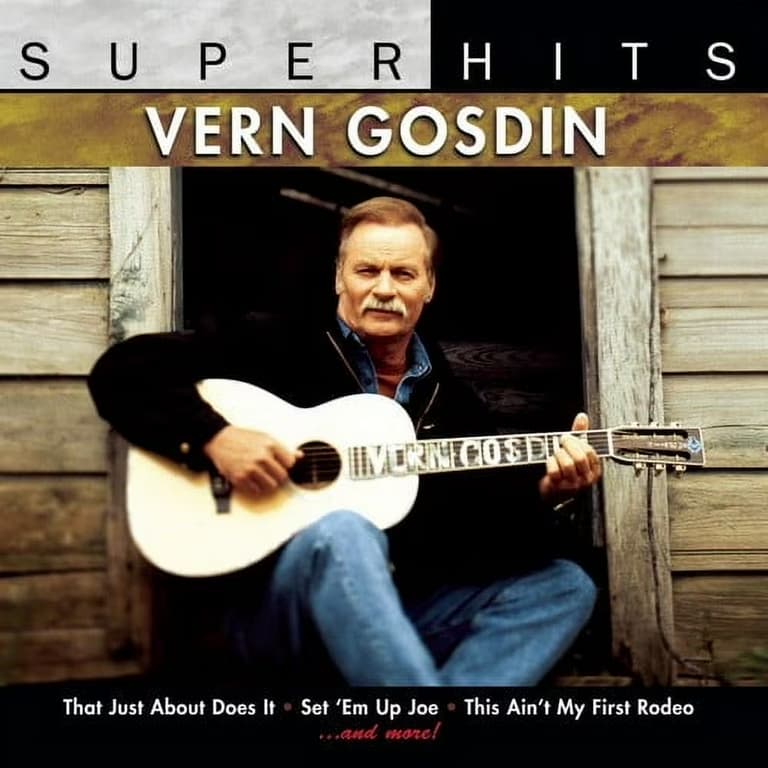
A timeless ode to the painful, stubborn refusal to let go.
In the late 1980s, as pop-country was beginning its ascent, a man with a voice as rich and worn as an old leather saddle walked back into the spotlight. He wasn’t chasing trends; he was singing the same kind of honest, heartbreaking country music that had always been his truth. That man was Vern Gosdin, and his voice earned him a name that was not a mere title but a declaration of fact: “The Voice of Country Music.” And in 1988, he delivered a masterpiece that would cement his legacy and give a generation a song to cling to during their darkest moments of heartache. That song was “Hangin’ On.”
Released in late 1988 as the lead single from his monumental album Chiseled in Stone, “Hangin’ On” was a powerful statement from a traditionalist who proved that genuine emotion would always find a home. It wasn’t just a hit; it was a phenomenon. The song slowly but surely climbed the charts, a testament to its raw power and the listeners’ profound connection to its message. It finally reached the coveted number one spot on the Billboard Hot Country Singles chart in March of 1989, a monumental achievement for an artist who had been through the ebb and flow of a long career.
But the story of “Hangin’ On” goes back even further, a fact that makes its comeback all the more poignant. The song was originally written by Bill and Cindy Walker and first recorded by The Gosdin Brothers, a duo composed of Vern and his brother Rex, all the way back in 1967. The 1988 re-recording wasn’t just a nostalgic revival; it was a reinterpretation born from a life lived. The intervening two decades had filled Vern’s voice with more gravel, more sorrow, and more wisdom. He didn’t just sing the words this time; he lived them. The weight of every single word, every drawn-out syllable, felt earned. It was a song that needed the weathered voice of a man who had truly known pain.
The meaning of “Hangin’ On” is as simple and as complex as love itself. It speaks to the stubborn, irrational human desire to cling to a love that is clearly gone. It’s a desperate plea, a quiet confession of a man who is not okay but is pretending to be. The lyrics paint a picture of a soul teetering on the edge of despair, holding onto a ghost of a memory. The simple repetition of the phrase “hangin’ on” becomes a mantra of resilience and a lament of stubborn hope. It’s a feeling every person who has ever had their heart broken knows intimately: the inability to let go, even when you know you should.
For those of us who remember those days, “Hangin’ On” is more than just a song; it’s a soundtrack to a time. It’s the tune that played on the radio during late-night drives, a solace during quiet moments of solitude, and a powerful reminder that it’s okay not to be okay. It’s a testament to the fact that true country music isn’t about glitter or spectacle; it’s about the honest-to-God truth. Vern Gosdin wasn’t just a singer; he was a storyteller, a soul-bearing conduit for the universal language of heartache. And with “Hangin’ On,” he gave us all permission to feel the pain, to stay in it for a little while, and to find a strange comfort in knowing we weren’t alone in our quiet desperation.